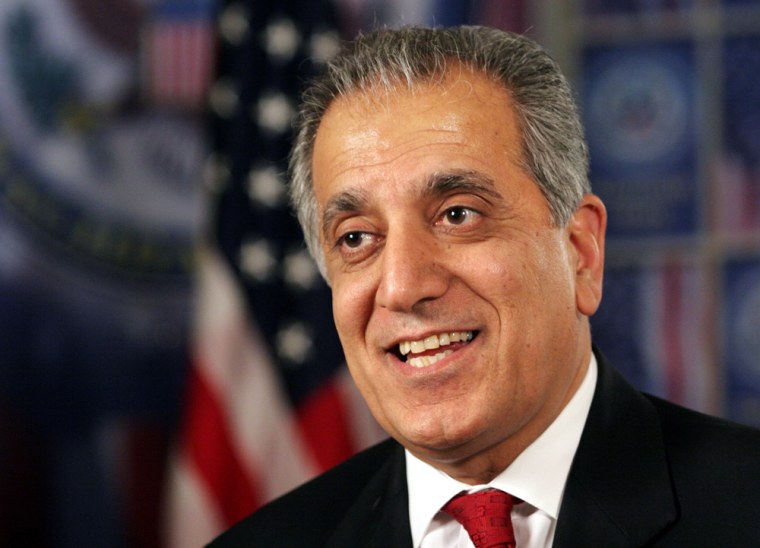Zalmay Khalilzad, the new U.S. ambassador to the U.N., said Tuesday the future of the Middle East is “the defining challenge of our time,” just as Europe’s security problems challenged the world for much of the 20th century.
Khalilzad, a veteran diplomat who recently stepped down as U.S. ambassador to Iraq, also called for greater U.N. involvement in Iraq and urged Sudan to accept a joint U.N.-African Union force in conflict-wracked Darfur.
Khalilzad started his new job Monday after being confirmed by the Senate on March 29 to replace John Bolton, but he didn’t come to U.N. headquarters until Tuesday.
He made no mention of Bolton, whose nomination sparked one of the most bruising Senate debates of President Bush’s tenure. But he made clear to reporters that the aggressive and abrasive style of his controversial predecessor was history.
Khalilzad said he would listen and be respectful, and he signaled a much more conciliatory U.S. approach to doing business at the United Nations when he was asked what America can do to improve its standing in the Muslim world today.
“American stands for values of freedom, values of rule of law, values of economic prosperity and I believe the composition of our own country reflects the respect for diversity we have in the United States,” Khalilzad replied.
“I believe that we don’t have all the answers and others have good ideas, as well,” he said. “And I will be thoughtfully listening to them. I am a problem solver. I will not posture.”
While Bolton was outspoken about the U.N.’s limitations, Khalilzad said, “I know that the United Nations can be a very effective and positive force,” citing his firsthand experience in Iraq and previously as U.S. ambassador to Afghanistan.
The Afghan-born Khalilzad said one of his priorities would be to “increase U.N. engagement” to improve the situation in Iraq. “What happens in Iraq is certainly important for the Iraqis, but it is also important for the future of the region,” he said.
“And the future of the region of the broader Middle East, in my judgment, is the defining challenge of our time, the way Europe was for the long time the source of many of the world’s security problems,” Khalilzad said.
Khalilzad said the U.N. played an important role in drafting the Iraq Compact, a five-year plan that requires the government to enact key political and economic reforms during its transition to financial self-sufficiency and integration into the regional and global economy. It was unveiled at U.N. headquarters in March and will be signed in early May at a conference in Egypt.
On Sudan, he called on the government “not only to cooperate in words but in reality on the ground” and give its approval to deploy a 20,000-strong U.N.-AU “hybrid” force in Darfur.
The new U.S. envoy was to leave Tuesday night on a trip to Kosovo to inspect the situation there before the council tackles the future status of the Serb province.
